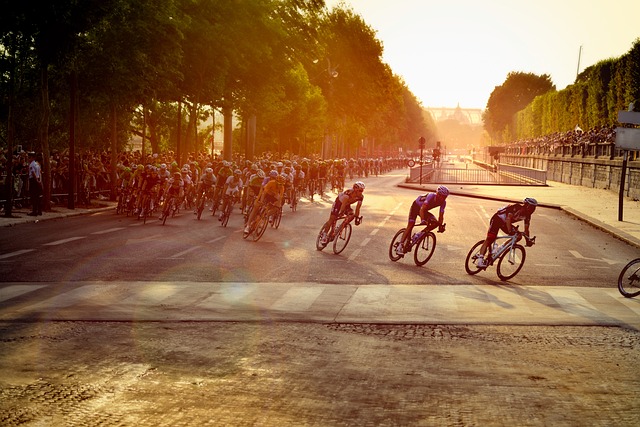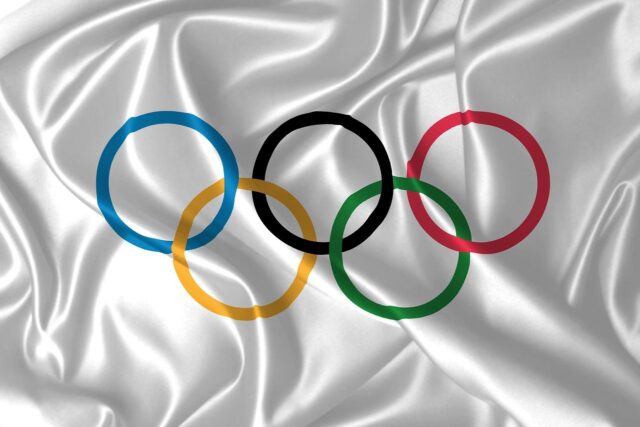Adults sometimes tell children: Cheaters never win. This is, of course, a terrible lie. They always win because they cheat. If they are caught, they can face consequences, which is the same as a crime. Crime never pays if you don’t get away with it. But we try to keep children on the right path, so you get the idea.
In sports, doping is considered one of the most blatant forms of cheating. Using substances that give you an advantage over other players is outright cheating. Let's take a look at 10 of the most incredible doping scandals.
10. Most Tour de France winners found guilty of doping

Thanks to Lance Armstrong, the whole world learned about doping at the Tour de France. But for those who had never followed the world of cycling or the Tour in particular, it might have come as a shock. Doping in cycling? Surely that's an absurd outlier, isn't it? How often can it happen? The answer is always. It always happens at the Tour de France and always has.
Almost every Tour de France winner has been guilty of doping at some point in their career. In 2022, 42 Tour de France winners over the previous 55 years were proven to have been guilty of doping at some point. That's more than 75% winners. That's a lot of doping.
In recent years, the Tour has tried to clean up its act, and there have been fewer scandals. Of course, this is due to the increased attention, and it is difficult to say whether anything would have changed if Armstrong had not been riding his bike too close to the sun.
In recent years, the Tour has tried to clean up its act, and there have been fewer scandals. Of course, this is due to the increased attention, and it is difficult to say whether anything would have changed if Armstrong had not been riding his bike too close to the sun.
9. Bodybuilding competition in Belgium cancelled after everyone escaped anti-doping test

Bodybuilders have long been associated with doping, thanks to the steroid stereotype that still permeates the sport. That's not to say it's necessarily undeserved, as there have been several scandals over the years and bodybuilders caught using steroids and other muscle-building products, but it has painted the entire industry with the same brush.
Breaking free of stigma, as the Tour de France is trying to do, is not easy. And stories like this one don’t make it any easier. In 2009, a bodybuilding competition in Belgium was cancelled due to an unexpected visit from anti-doping officials, and every competitor literally grabbed their things and ran.
The event was a championship competition with 20 competitors registered and ready to go. That every single one of them withdrew when the officials arrived was probably disappointing to all the fans in attendance.
The officials pointed out that the people who run these events never actually invited them to the event, so they had to make surprise visits, and the event was actually held in the Netherlands, which they believed was done specifically to keep Belgian anti-doping officials out. Obviously, that didn't work, and the officials were forced to conclude, as most reasonable people would, that everyone was using something illegally.
8. Russia secretly swapped urine at the Olympics

Russia has a sometimes checkered history when it comes to the Olympics because they don’t always play fair. In 2019, Russia was banned from the Olympics for four years due to doping scandals, although some athletes from Russia still had workarounds. So what exactly were they doing that was so egregious that it was banned nationwide?
Let's go back to the 2014 Sochi Olympics. Four years ago, the country was doing relatively poorly, so they needed to up their game. That might have meant having higher-level athletes, but in reality it meant smuggling urine through mouse holes.
Officials drilled a hole in the wall of an anti-doping lab and replaced urine samples from their drug-using athletes with clean ones so they could pass tests. The Russians won 33 medals. Well done, drugs!
The former head of Russia's anti-doping agency helped expose the scheme, and Russia naturally denied any state-sponsored doping. However, the country and its athletes are constantly under investigation, with five different Olympics scrutinized since 2014. One athlete said that about 99% Russian Olympians were doping.
Russia has been banned not only from the Olympics but from international track and field competitions. Every time they are given the opportunity to compete at any level, new information comes out about fake data and lab samples. As if they can't help but do it at this point.
7. More than 50% athletes admitted to doping in anonymous surveys

Usually you have to catch someone doping to prove doping, because people don't volunteer that information. It kind of defeats the purpose of cheating. Unless you give them a way out, like an anonymous survey. That happened in 2011, and the results weren't good for those who like clean sport.
According to the World Anti-Doping Agency (WADA), about 2% athletes have used doping. But a pair of surveys asking athletes about their habits over the past year found that 57% admitted to it.
More than 2,000 runners took part in the survey. One was conducted at the World Championships, where 29% admitted to doping, and then 45% at the Pan Arab Games admitted to doping the previous year. The data first came to light in 2013, two years after the surveys, and was not officially published until six years later.
That the reports were commissioned by WADA and contained results they did not want to hear may have played a role in the delay. One author made the same point, stating that there was a lot of pushback from professional bodies who did not like the results.
6. Nike Alphafly shoes banned as "technological" doping

There are several types of doping in sports. Drugs are the obvious and most common, but you can also engage in technological doping. This is when you use tools or equipment that give you an unfair advantage. For example, imagine playing basketball in those cool cartoon rocket shoes that allow you to fly across the court to dunk the ball. Kind of like that, but less cool.
Shoes have been banned before as technological doping. They're called Nike Alphafly shoes, and they were banned from the Tokyo Olympics. The shoes are used by runners to provide greater energy return and speed. And they work so well that you can't use them.
Eliud Kipchoge discovered the shoe when he became the first person to run a marathon in under two hours. The shoes were said to be the culprit. The shoes add bounce, extra cushioning, and all the performance-enhancing technology that governing bodies say is against the spirit of the race.
5. In 1930, a famous cycling race had to ban auxiliary drugs

The last trip to France and their infamous bike race. We already mentioned that many winners have taken drugs in the past, but let's look further. The Tour de France has been around for over a century, even in times when it was questionable.
In the early days, competitors drank wine and smoked cigarettes while riding. Ether, nitro, and other performance enhancers were also common. Things were so bad that in 1930, the official race rule book included a section reminding riders that the Tour de France would not provide them with performance enhancing drugs. Imagine how bad the situation was that they had to publish that. Competitors had become so accustomed to the strain that they expected to be pumped full of drugs before the race.
4. Doping in chess

Doping isn't necessarily a problem in sports, it's a problem in competition. Whenever two or more people are in any kind of confrontation, there's always a chance that someone could be using something to give them an advantage. That's why even chess players need to be tested, because you never know if someone is chasing your bishop with performance-enhancing drugs.
In 2008, a professional chess player had a public scandal after he was asked to give a urine sample. It was later decided that he did not fully understand the request due to a language barrier, but he was never tested. It remains the most public and well-known doping incident in chess, despite no one ever being found guilty of doping.
This incident also proved that there is an anti-doping body in chess and they do test. Sometimes too much, as one player had to give three samples in a row because he drank too much water and it was diluted.
Ritalin and modafinil are two drugs that are considered performance enhancers for chess players. Tests show that players who take the drugs play slower, but overall play better.
3. Doping for racing pigeons

Doping doesn't have to be a purely human problem. Obviously, there are people behind it, but even racing pigeons need to be monitored because there is always someone willing to give the pigeon a Mickey Mouse trick to get ahead in this world.
If you don’t know, pigeon racing is exactly what you think it is. People take homing pigeons 1,200 km from home and release them. They then race home, and the first one back wins. Belgium is at the forefront of the sport, holding its first race in 1818.
Like anyone else involved in racing, a pigeon can be given a variety of drugs, from steroids to something like painkillers, that can help it survive the race better than its competitors.
In 2013, six Belgian birds were tested and found to be doping. Five of them had anti-inflammatory drugs on board, and the sixth was given cocaine. People are turning birds into drug addicts to win races.
The reason pigeons are drugged is the reason anyone or anything is drugged in sport: money. A single racing pigeon was sold in May of the same year the scandal broke, for $430,000.
2. Doping scandals in eSports

If you’re of a certain age, you probably smirk when you hear the term “esports.” Not everyone thinks of esports as the same as other sports, but two things can’t be denied. Esports is hugely popular and certainly competitive. There’s also a lot of money at stake, and it’s a major breeding ground for doping scandals.
Drug testing became a part of the eSports world in 2015 after the massive Adderall scandal involving a Counter-Strike championship team that was alleged to have used the drug. Because these guys don’t need steroids; they need focus. In the world of doping, you play to your strengths.
Since then, many more accusations have been made in the gaming world, and other drugs such as Adderall, Ritalin and other ADHD drugs have been brought forward, which are believed to improve focus, concentration and reaction time. Despite promises that there would be some regulation, little has come of it.
1. The speedometer that was banned as technological doping

We've covered technological doping briefly before, but no technological doping has reached the heights and depths of Speedo's banned swimsuit. Considered an unfair advantage for competitive swimmers, the Speedo LZR Racer swimsuit has had a tough time.
As silly as it may sound, there is evidence that technology, even just technology, is a big help to swimmers. In 1976, when goggles were first allowed, many records were broken. In 2008, almost every record-breaking swimmer wore an LZR suit. In fact, 62 records were broken wearing the suit.
Speedo enlisted NASA scientists to develop the LZR suit, which provides the lowest possible drag and resistance. The technology is actually quite sophisticated, and the result is a super microfiber suit that increases swim performance by 5% and reduces drag by 38%.
The criticism of the suit is that it is a device that helps you win. It costs $550 and can only be worn 10 times before it loses its competitive edge. In 2009, the world's governing body for swimming banned the suits because they "reduce natural ability."













Оставить Комментарий